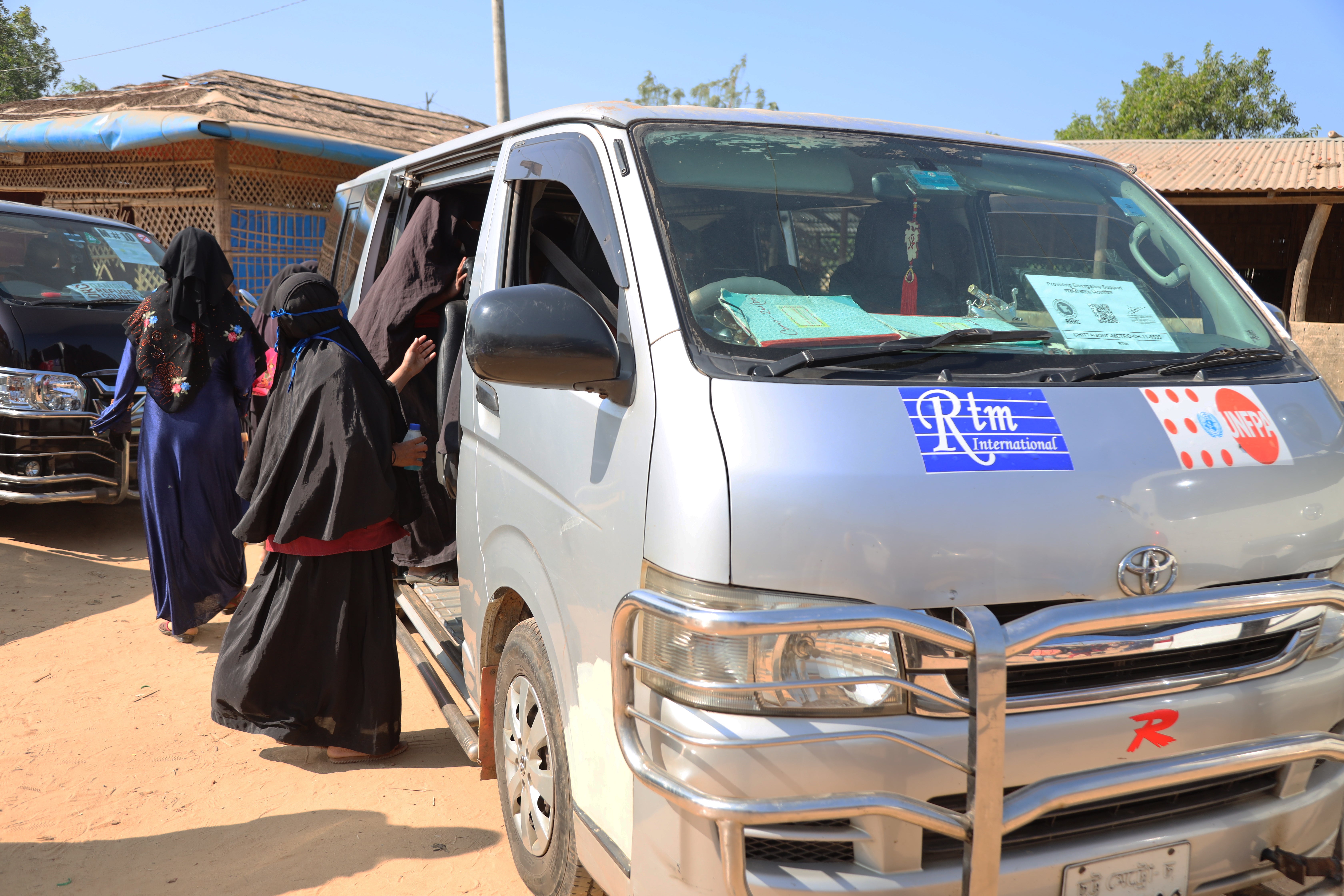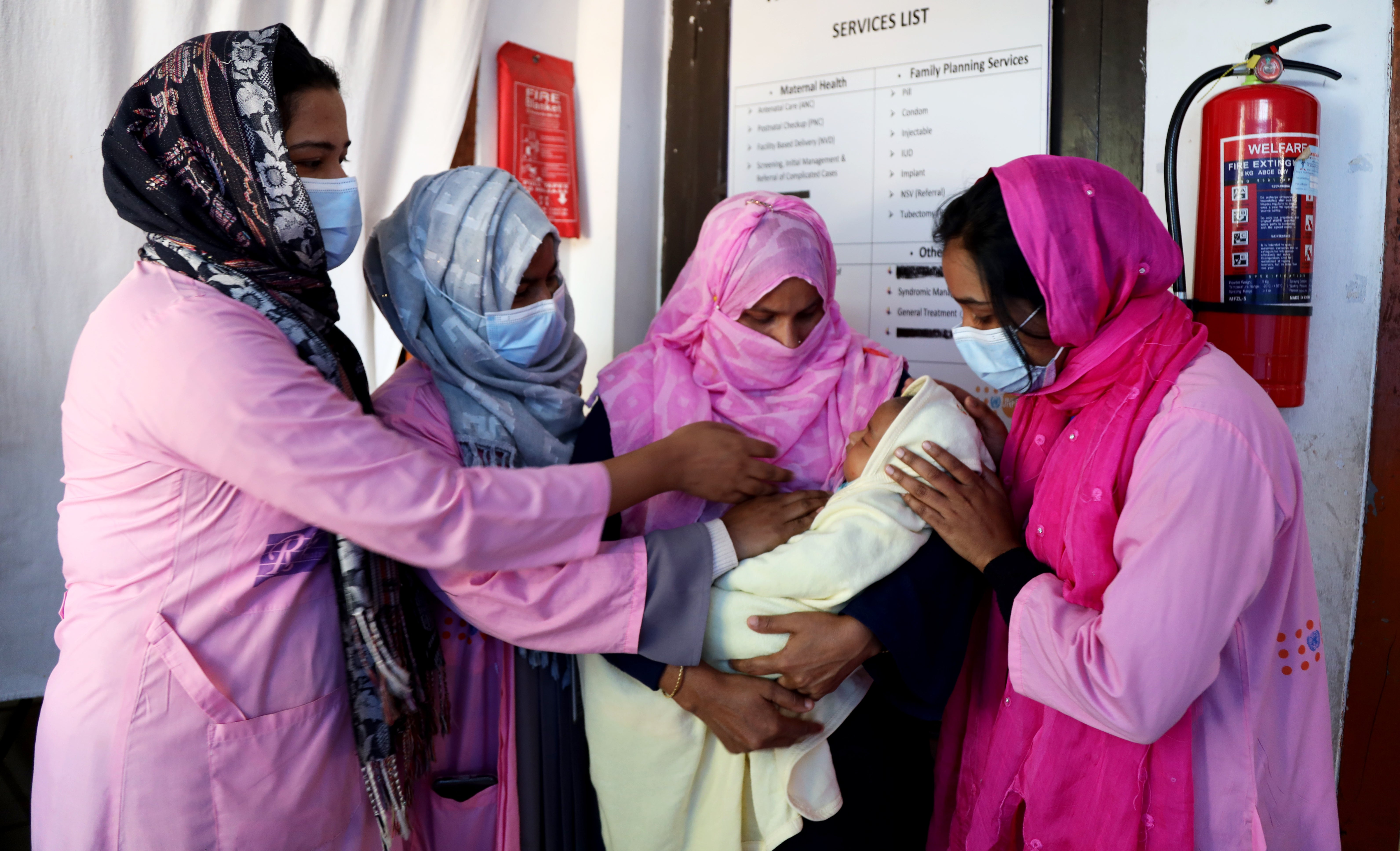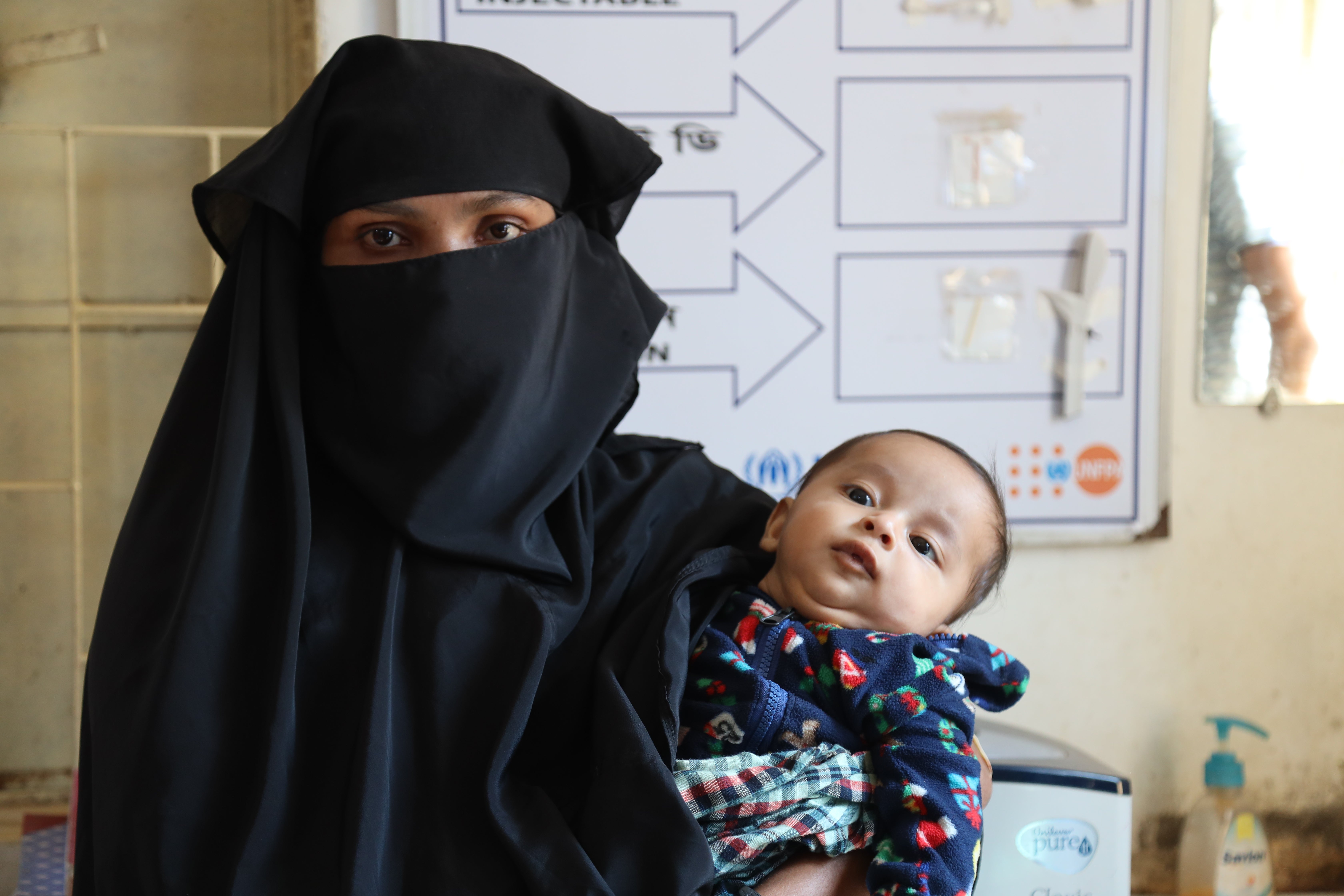“It was a traumatic experience and I do not want it to ever happen again. My mind is still haunted by it.”
Rasheda Begum, a 25-year old woman from the Rohingya camps in Cox’s Bazar, can barely contain her emotions as she recounts the experience of one of her children dying during an unsafe delivery in the past. Today, the 23 UNFPA-supported health facilities around the camps ensure that deliveries are performed by professional midwives that reduces the chances of such an incident reoccurring.
However, due to COVID-19 women’s mobility in the Cox’s Bazar district has been constrained, including in the Rohingya camps and surrounding host communities, imposing an urgent concern that maternal and newborn deaths could increase.
While UNFPA continues to provide life-saving sexual and reproductive health services despite the pandemic, there was a significant decrease in the number of visits to health facilities in Cox’s Bazar during the first months of the pandemic.
This is why UNFPA introduced the ‘Community-Based Patient Transportation System’; an innovative initiative, funded by the Women’s Refugee Commission, which provides free and safe transportation to women from the Rohingya camps and host communities to nearby health facilities.
The transportation system would also minimize social contacts on the way to the facility and increase access to quality maternal healthcare and family planning services, despite COVID-19.

Ensuring safe births, everywhere, at all times
Yasmin Aktar, a mother of three from one of the host communities, recently used the ‘Community-based Patient Transportation System’ when she was pregnant with her third child. Yasmin had delivered two of her previous children at home and even though she had faced no major complications, she was aware of the dangers of delivering outside a proper health facility without professional midwives.
“Ever since I heard the transport service was available in my community, I went and consulted the community health workers and midwives. I knew I wanted to have my next delivery at a health facility,” she says with confidence.
Yasmin was impressed with the care and support from the community health workers running the transportation service, recalling their patience during the lead up to her delivery.
“My labour pains started at around 5 o’clock in the morning and I called the health workers to come and check on me. This time, however, it was just a false alarm and I was taken back home. Just the next day, I had to call again because of the pain I was experiencing. This time I was taken to the nearest health facility and was able to deliver a strong and healthy baby. The care and patience of the midwives really comforted me”, she recounts.
After the introduction of the community-based transportation system, the facility-based provision of sexual and reproductive health services has significantly improved in the Cox’s Bazar district, with the use of antenatal care services increasing by 110% and facility-based deliveries increasing by 62%.

Yasmin shows her newborn to the midwives in a local health facility
Beyond safe deliveries
Rasheda, who also used the transportation system for her last delivery, now uses the service to access family planning consultations. Being a mother of six young children at the age of only 25, Rasheda felt she should use family planning to prevent any more pregnancies, after learning about it through her midwife. Considering the deeply held traditional beliefs in her community, this was easier said than done.
“In our culture there is a widespread belief that using modern contraceptive methods is a sin. Our husbands want us to have many children and they don’t want us to be able to control the number of babies,” she explains.
Rasheda herself had many difficulties in convincing her husband that she could not bear another pregnancy, at least for now. However, after persistent persuasion, she was able to make him accept the idea of her being on birth control. She continued to use the ‘Community-Based Patient Transportation System’ for attending family planning consultations at a nearby health facility and has now found a solution that works best for her.

After the delivery of her sixth child, Rasheda was satisfied with the amount of children she had
“I now have an implant on my arm that will prevent me from getting pregnant for the next three years. To me this decision is not a matter of cultural beliefs, but of my health and choice. I think I have made a healthy choice, which allows me to take care of my body and control spacing between pregnancies,” she concludes.
Since the ‘Community-based transportation system’ was introduced, family planning consultations have increased by 34%, and UNFPA continues to work with more than 450 community health workers in Cox’s Bazar, who promote the availability of the health facilities and the transportation system.
By increasing accessibility to health facilities and raising awareness on the importance of ensuring professional sexual and reproductive health care services, UNFPA continues to prevent maternal deaths and unwanted pregnancies, despite the pandemic.


